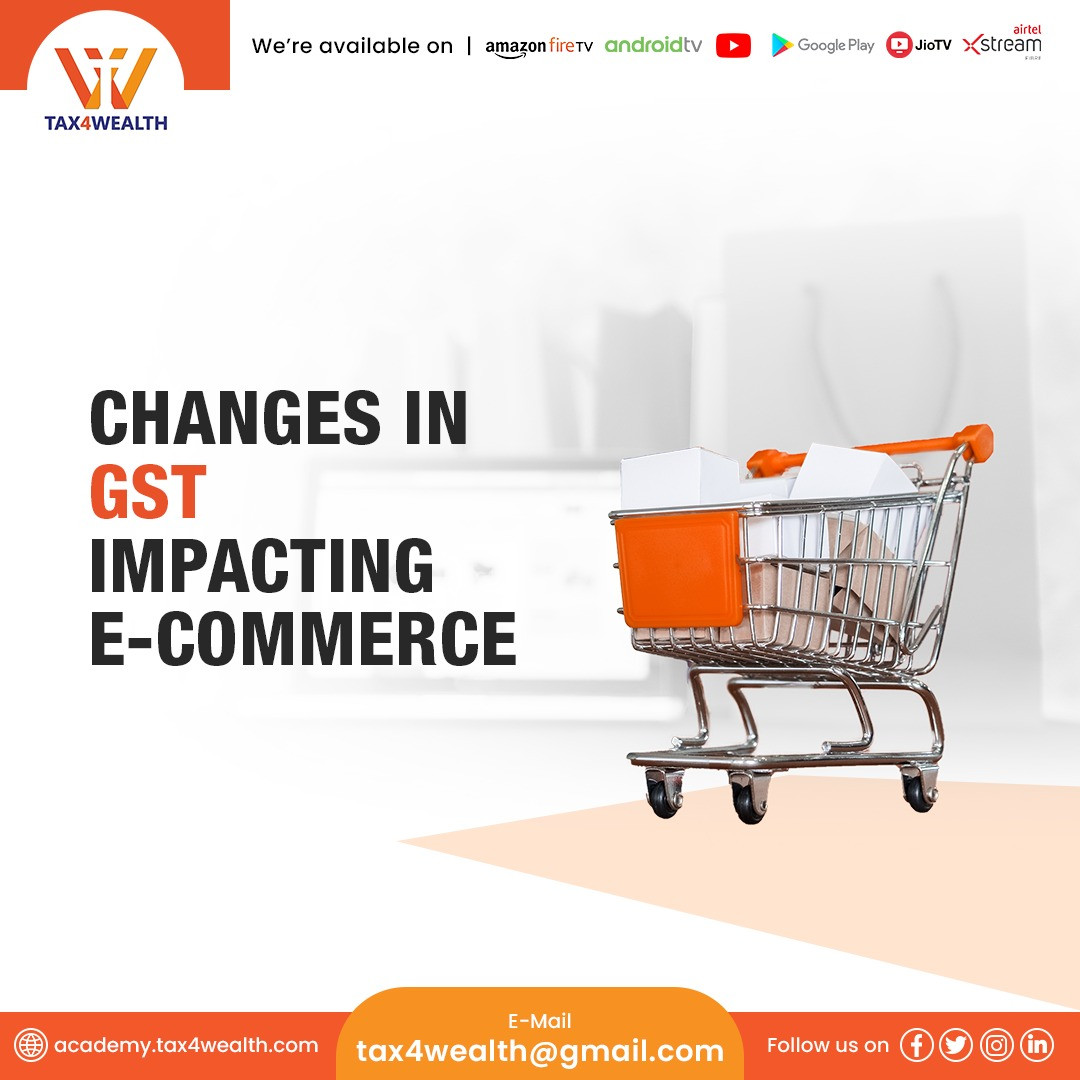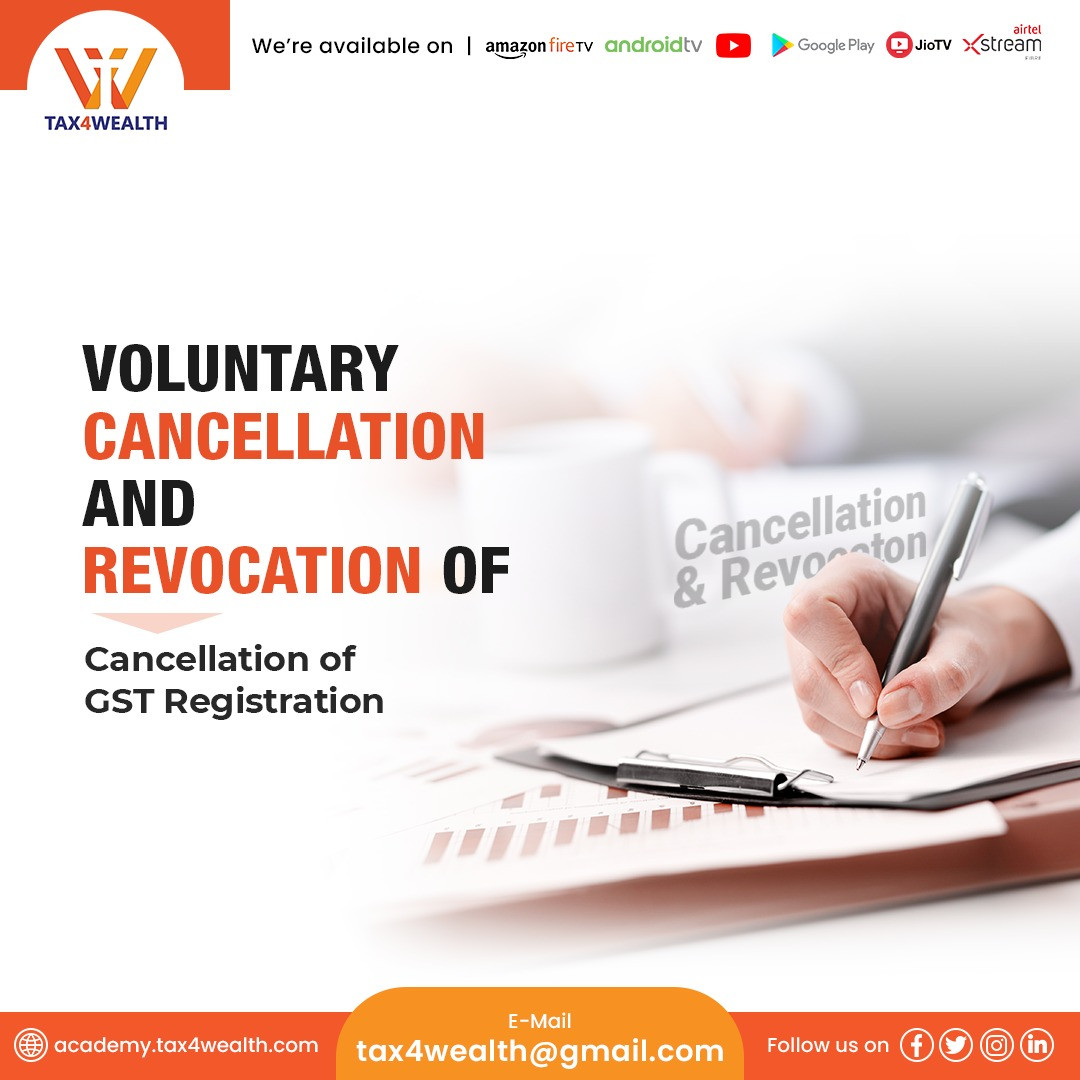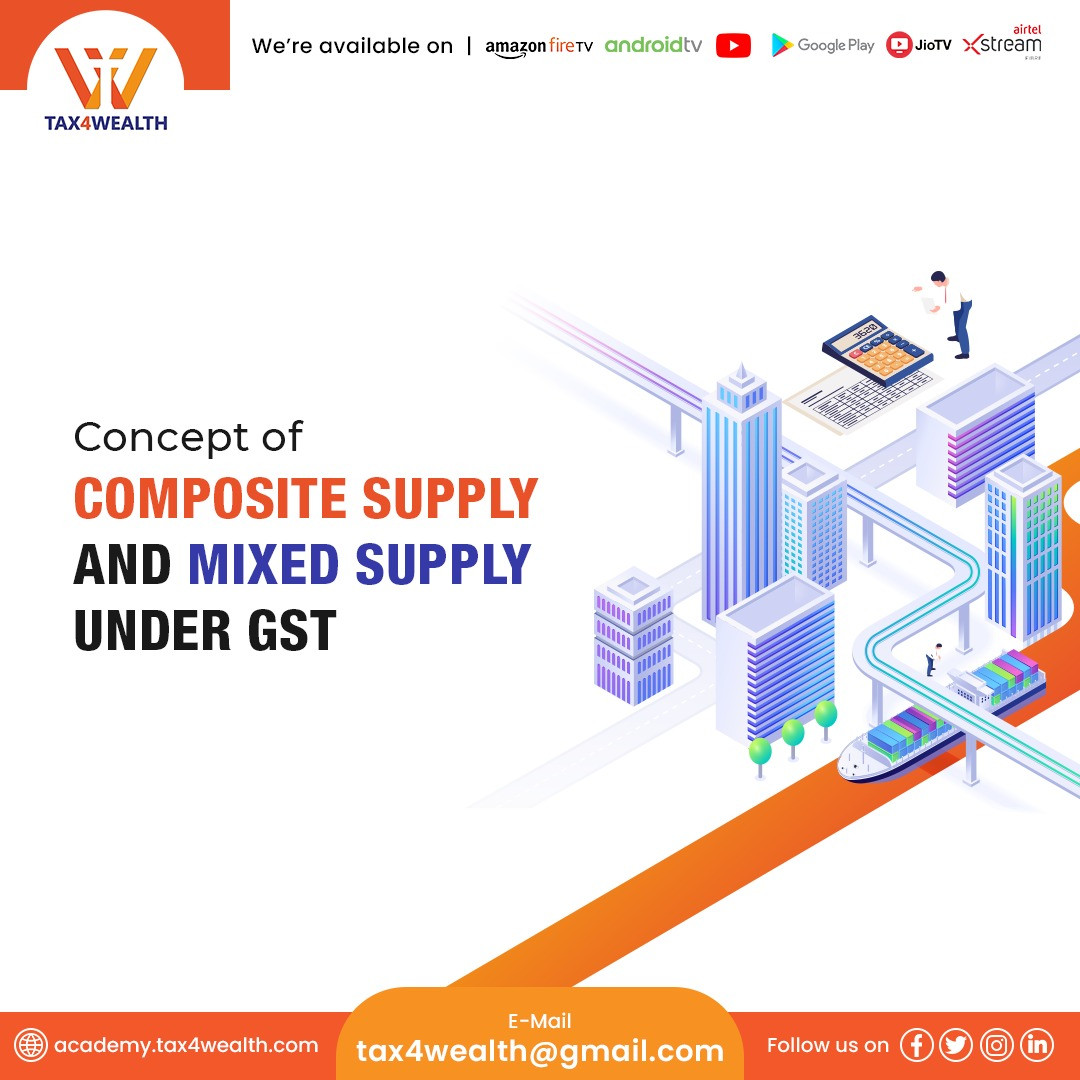
Changes in GST Impacting E-commerce
As the name suggests, electronic commerce refers to the buying and selling of products and services as well as the transfer of money and data through any electronic network, such as the internet.
The Goods and Service Tax (GST) Act, which went into effect on July 1st, 2017, streamlined and consolidated a number of the State’s indirect taxes. The GST has a most beneficial effect on the sector of rapidly expanding e-commerce websites. It resolved the challenging tax burden concerns for both buyers and sellers. The GST Act’s rules and regulations started to be applied to the fast expansion of sellers and businesses on online marketplaces.
Also, read; Key Points of Decoding GST on Liquidated Damages
The GST has Caused Significant Changes in E-commerce
According to MGL's (Model GST Law) Section 43B(d):
E-commerce is the provision or receipt of goods or services, or both, over an electronic network, primarily the internet, using any internet-based applications, including but not limited to email, instant messaging, shopping carts, web services, Universal Description Discovery and Integration (UDDI), electron, and others.
A platform that supports the provision of goods or services, or both, must be owned, operated, or managed by you to qualify as an electronic commerce operator under Section 43B(e).
Any individual providing data or other services incidental to or connected with the delivery of goods and services, or both, through an electronic platform is referred to as an Operator.
A person who provides products or services on his behalf is not regarded as an Operator, nevertheless.
1. The composite Scheme excludes e-commerce:
The bulk of these vendors that have registered with marketplace operators is small and medium-sized firms. As part of the GST law, the government has developed a composite plan. This program's main objective for small and medium-sized firms is to lighten their compliance workload. Businesses must submit quarterly reports instead of monthly reports and pay a small tax rate of up to 2%. The GST statute, on the other hand, expressly disallows e-commerce companies from participating in this scheme.
2. GST registration exemption:
The government has imposed a cap on all businesses. Once a business reaches a particular level, it must register for the Goods and Services Tax. E-commerce vendors are immune from this restriction, though. According to tax notice No. 65/2017 dated November 15, 2017, those with sales of less than Rs. 20 lakhs are exempt from registration.
3. The marketplace operator deducts taxes from the source:
The marketplace operator must deduct a portion of the seller's GST burden as part of the new tax law and deposit it with the government. This approach is known as "Tax Collection at Source (TCS)" by the GST statute. The marketplace operator will ultimately need the marketplace seller to submit a monthly GST return to claim credit for TCS received by the seller. Their liquidity and cash flow will therefore be impacted.
All marketplace operators have conducted a first-level impact study on GST, but marketplace vendors are still not aware of these regulations. The time calls for continued vigilance. Keeping up with impending developments is crucial. Such vendors have to start preparing their GST transition plan right once.
The Cost of Taxation for E-commerce Businesses:
E-commerce businesses are worried about the anticipated tax collection even if the GST unites various indirect taxes and they won't have to worry about state governments charging an entry fee on items sold online or VAT on non-declared warehouses, etc.
Tax Deduction on Returned Orders: The Unformulated Burden:
Order cancellations, refunds, and cash on delivery (COD) will all affect the operator's cash flow. More than two-thirds of transactions in India are COD, and the reconciliation takes place 7 to 15 days after the initial transaction. The return or cancellation rate there is between 15 and 18 percent. It would be difficult for operators to get reimbursements for canceled or returned purchases if tax has already been deducted. Additionally, the operators will need to manage their accounting and reconciliation to comply with the new criteria.
The items will be returned due to a cancellation or fault, and TCS will be charged even though the supply did not entirely manifest. As more transactions and more statements are submitted, the operator's compliance expenses will increase. You'll need a method to transport items between vendors and warehouses if you wish to sell products online (or vice versa).
Benefits and Drawbacks of the GST on Online Shopping:
The GST on e-commerce offers advantages, but it also has drawbacks. Here are a few benefits of implementing GST:
- The government has received TCS in place of GST collection.
- There is a standard pricing structure for everything. The seller profits from this standardized structure since offline retailers now have an equal advantage in costs and price.
- It eliminates the various taxes imposed by various states. E-commerce efficiently makes that possible.
- There would be a significant decrease in other overhead expenditures, logistics, inventory costs, etc. Less warehouse space is needed as a result.
The GST Issues in the E-Commerce Sector Include:
- Influential retail stores are unhappy because of the increased taxation placed on retail platforms.
- Each state that the service sector intends to serve requires registration.
- There are now two levels of oversight over businesses—one at the state level and the other at the Center.
- MSMEs are a problem in this regard since states cannot enforce their autonomy to adjust tax rates at whim and according to convenience. Inconveniences for small enterprises exist in the GST network.
Reverse Charge/Input Tax Credit for ECO Applicability:
They are not input services to the ECO since they do not get the restaurant services that are provided via them. As a result, they shouldn't be listed as inbound supply (liable to reverse charge).
To acquire inputs or input services on which they may claim the input tax credit, ECOs provide their services as an electronic platform and a middleman (ITC). In exchange for the services it offers, the ECO charges commissions, fees, etc. ECO uses the ITC to pay the GST on services it has rendered on its behalf (say, to a restaurant). Even when ECO is declared accountable for paying tax on restaurant service, the situation in this regard remains the same. ECO would be eligible for ITC as previously. As a result, it is made clear that, by section 9(5) of the Act, ECO shall not be forced to reverse ITC on account of restaurant services for which it pays GST.
Additionally, it should be emphasized that ECO is required to pay the whole GST burden associated with restaurant services in cash; hence, no ITCs may be used to pay the GST associated with restaurant services provided by ECO.
Conclusion:
The GST has recently been a major topic of concern because of the uncertainty and prosecution in the current tax framework. GST is anticipated to ease the existing difficulties. Businesses in the e-commerce industry should be particularly aware of the GST since a tax collection at source (TCS) system is a feature of the model GST law.
FAQ:-
Q. What is e-commerce, exactly?
Electronic commerce is defined as the provision of goods or services, or both, including digital items, through a digital or electronic network under section 2(440 of the CGST Act, 2017.
Q. Who are e-commerce operators, exactly?
According to Section 2(45) of the CGST Act, 2017, an "Electronic Commerce Operator" is any person that owns, manages, or runs a digital or electronic facility or platform for electronic commerce.
Q. In place of the real supplier, will an e-commerce operator be required to pay tax for the provision of goods or services made via it?
Yes, but only for services that have been reported under Section 9(5) of the CGST Act of 2017. If such services are provided through it, the tax must be paid by the operator of the electronic commerce site, and all requirements of the Act apply to that site operator as if he were the supplier who was required to pay tax over the provision of such services.
Q. Under GST rules, may an online retailer choose a composition scheme?
No, an online store is not allowed to choose a composition scheme.
Q. What is TCS (Tax Collection at Source)?
When the consideration for such goods is to be collected by the e-commerce operator, the operator is obligated to collect an amount at the rate of 1%, or (0.5% CGST + 0.5% SGST), of the net value of taxable supplies made via it. Tax Collection at Source is the name given to the amount so obtained (TCS).
Q. Is GST registration mandatory for all e-commerce companies, irrespective of the sales amount?
Yes, regardless of the volume of sales, GST is required for all online retailers.
Q. Can an online marketplace for purchases claim the Input Tax Credit?
Yes, merchants on an e-commerce platform are eligible for the input tax credit.
Related News
No comments yet, Be the first to comment.













